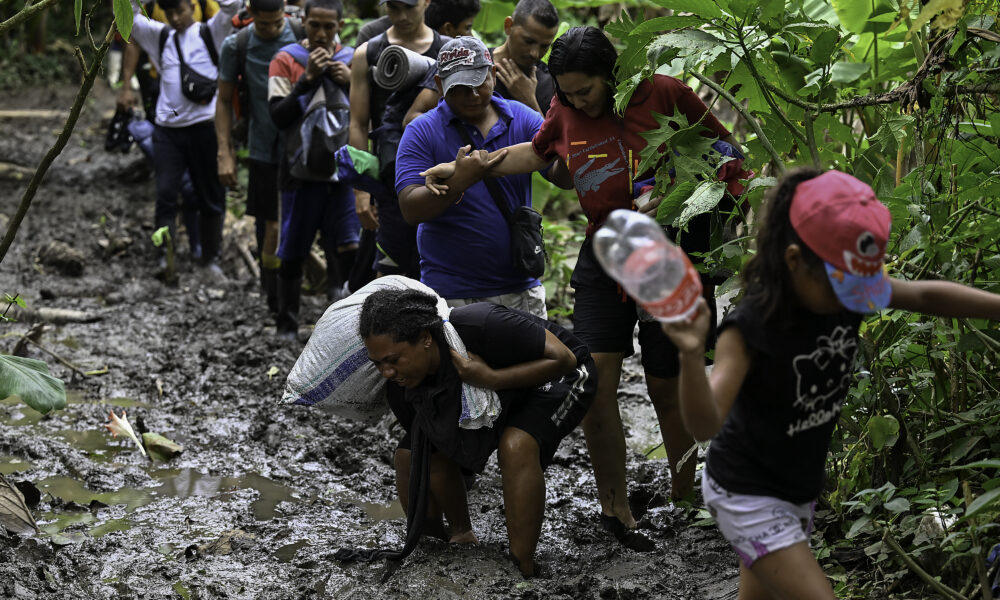International
Flood of forlorn Venezuelans brave jungle crossing in Panama
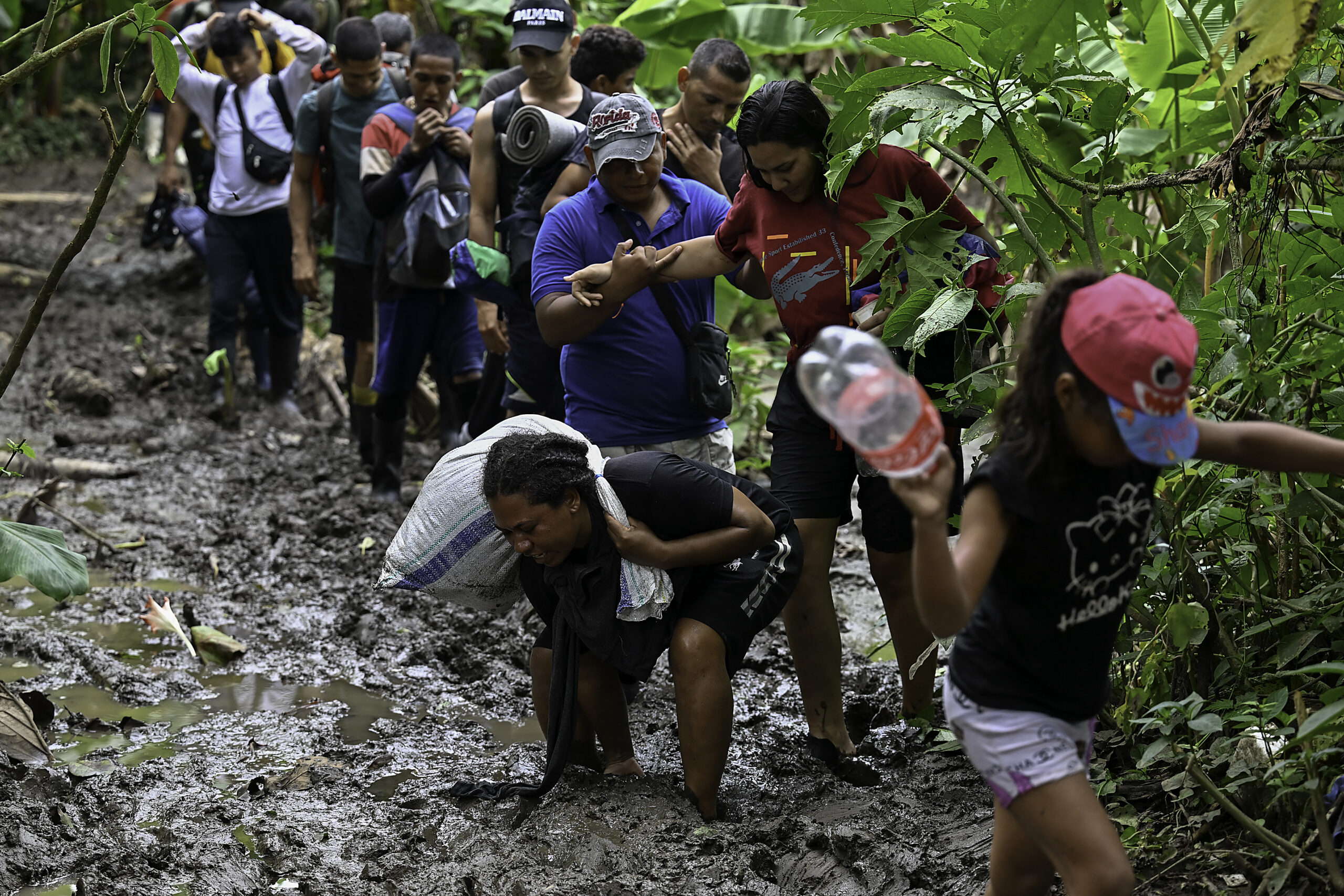
| By AFP | Juan José Rodriguez and Luis Acosta |
Wading through knee-deep mud, some limping, hundreds of Venezuelan migrants battle against fatigue with their eye on the prize: hope for a new life in the United States.
With sore feet, injuries and dented spirits several days into their ordeal — still far from halfway — they trudge in single file through the infamous Darien Jungle linking Colombia to Panama.
With a long way still ahead through Central America and Mexico, the group of men, women and children, some babies, already has many horrors to recount.
And it may all have been in vain.
Last week, the United States announced that Venezuelans arriving by land without travel documents will be returned to Mexico.
For Jesus Arias, 45, sometimes one has to “risk one’s life to have a future.”
“But honestly, I would not advise anyone to come through the jungle. It is very hard,” he told AFP as he and others arrived at an Indigenous settlement in Panama, Canaan Membrillo — one of several border control points in the 575,000-hectare (1,420,900-acre) jungle.
Arias arrived at Canaan Membrillo in a T-shirt and shorts, carried by other men in the group after injuring his knee.
‘We’re going anyway’
He undertook the journey knowing it would be tough because “there is no future in Venezuela. Every day it gets worse.”
He may have no choice but to go back to the crisis-hit country, which is wracked by violence, insecurity and a lack of essential services. The UN Refugee Agency says 6.8 million refugees and migrants have left Venezuela since 2014.
Under the US decree, only 24,000 Venezuelans who apply under a humanitarian program will be granted entry.
“We’re going anyway,” said Arias. “Even if we are stopped, at some point we will enter.”
The number of Venezuelans making the Darien crossing reached a record high in 2022 — some 133,000 between January and mid-October, according to authorities in Panama.
For the whole of last year, the figure was 2,800.
Venezuelan Nelida Pantoja, 46, saw “many dead, many mountains, many rivers that carried off many people… It was horrible,” she told AFP at Canaan Membrillo.
But like most of her fellow migrants, she vowed to “keep trying” until she gets into the United States.
Darwin Vidal, 33, said he was struggling to garner the strength for what lay ahead: battling not only rough terrain but also being at the mercy of poisonous snakes and other wild animals, as well as criminal groups.
“I got lost for three days in the jungle with my family. With my children, we were going too slowly. We couldn’t keep up with the group, we fell behind, and got lost” for a scary while, he said.
Rusbelis Serrano, 18, said she thought the worst was over.
“My mom, my dad, my brothers are waiting for me” in the United States, Serrano told AFP.
“I don’t have much left. I have to keep trying.”
The authorities in Panama say at least 100 people have died crossing the Darien since 2018, about half of them in 2021 — the deadliest year so far.
International
Nine People Killed in Two Armed Attacks in Manabí, Ecuador
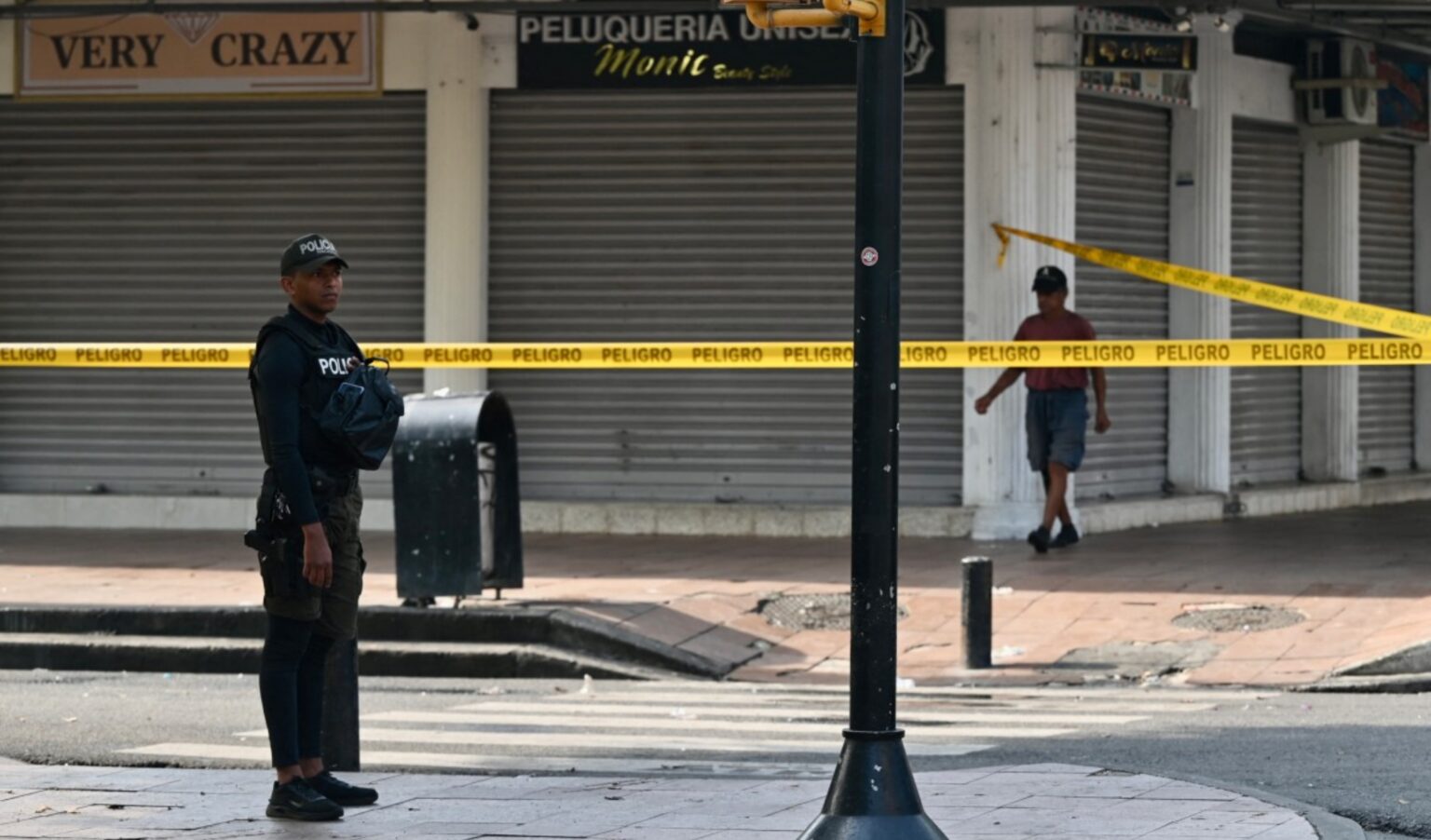
At least nine people were killed Monday in two nearly simultaneous armed attacks in the province of Manabí, located on Ecuador’s Pacific coast, one of the areas hardest hit by violence in the country, according to the National Police.
The first attack left seven people dead and took place in Camarones, a rural area of the Jama canton. The second occurred in the sector known as La Y, in the seaside town of Canoa, part of the San Vicente canton, where two people were killed.
According to preliminary reports, both incidents occurred early Monday morning when armed men intercepted the victims. Authorities said the motives behind the attacks remain under investigation.
The assault in Camarones happened around 1:15 a.m. local time, when a group of armed individuals stormed a ranch in the area. The victims have not yet been officially identified.
About 15 minutes later, in Canoa, two men traveling in a motorized taxi were intercepted by armed suspects riding motorcycles and shot. One of the victims was identified as a 28-year-old passenger, while the identity of the driver has not yet been confirmed.
The attacks occurred just days after another multiple homicide on February 12 at a ranch in San Juan de las Cucarachas, a rural area of the Santa Ana canton in Manabí, which left six people dead.
Manabí has been experiencing escalating insecurity linked to disputes among organized crime groups, including drug trafficking networks and territorial control conflicts. In response, the government has maintained a state of emergency in the province since August to address the surge in violence attributed to these criminal organizations.
International
Over 40 Million Affected by Major Snowstorm in Northeastern U.S.
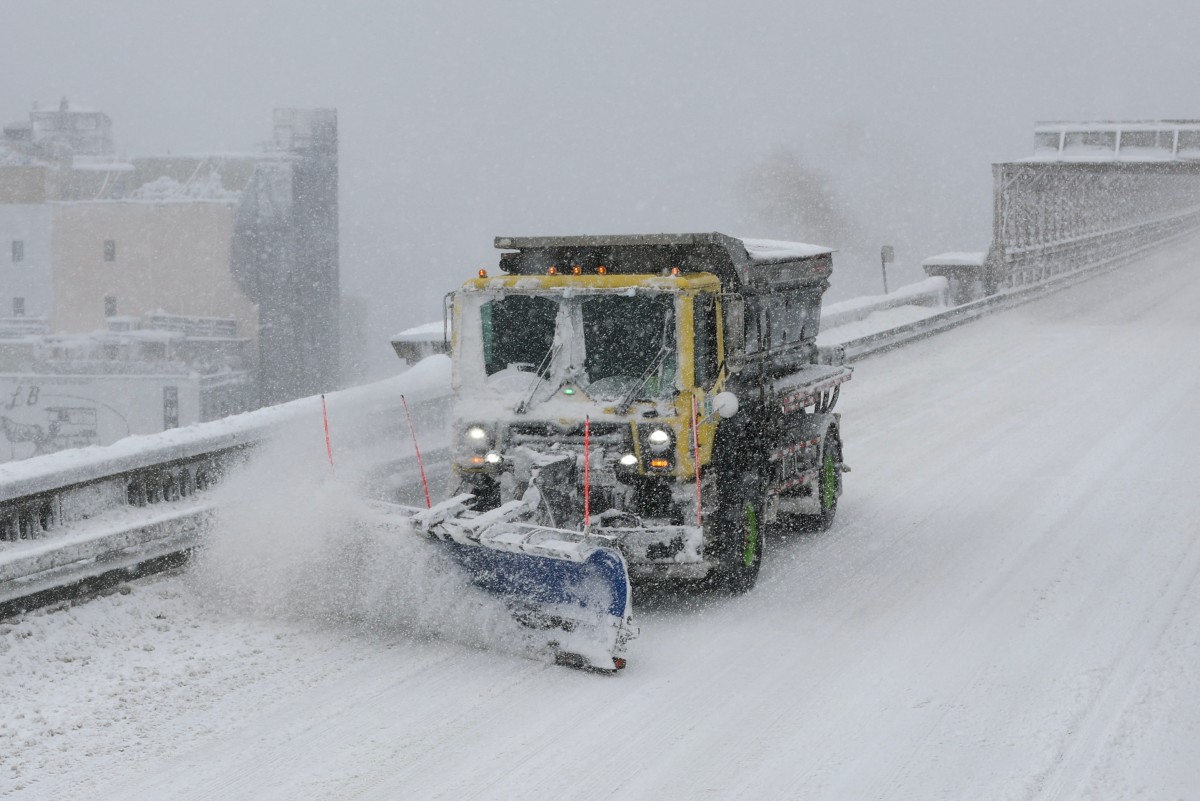
More than 40 million people across the northeastern United States are facing a new major snowstorm this Monday, including residents of New York City, where local authorities have shut down roads to traffic.
The storm triggered widespread flight cancellations early in the morning and caused power outages affecting thousands of homes and businesses throughout the region.
New York City Mayor Zohran Mamdani banned non-essential vehicle travel at least until noon and ordered the closure of public schools as a precautionary measure. Authorities in neighboring states, including New Jersey and Rhode Island, imposed similar restrictions to ensure public safety.
This marks the second major winter storm to hit the East Coast in less than a month, leading to growing frustration among residents.
“I’m fed up. I don’t want to see another snowflake,” said Vincent Greer, a resident of Wildwood, New Jersey, as he shoveled accumulated snow from in front of his building.
Officials continue to urge residents to remain indoors, avoid unnecessary travel, and monitor local advisories as crews work to clear roads and restore power.
International
Ninth Victim Recovered After Deadliest U.S. Avalanche in Decades
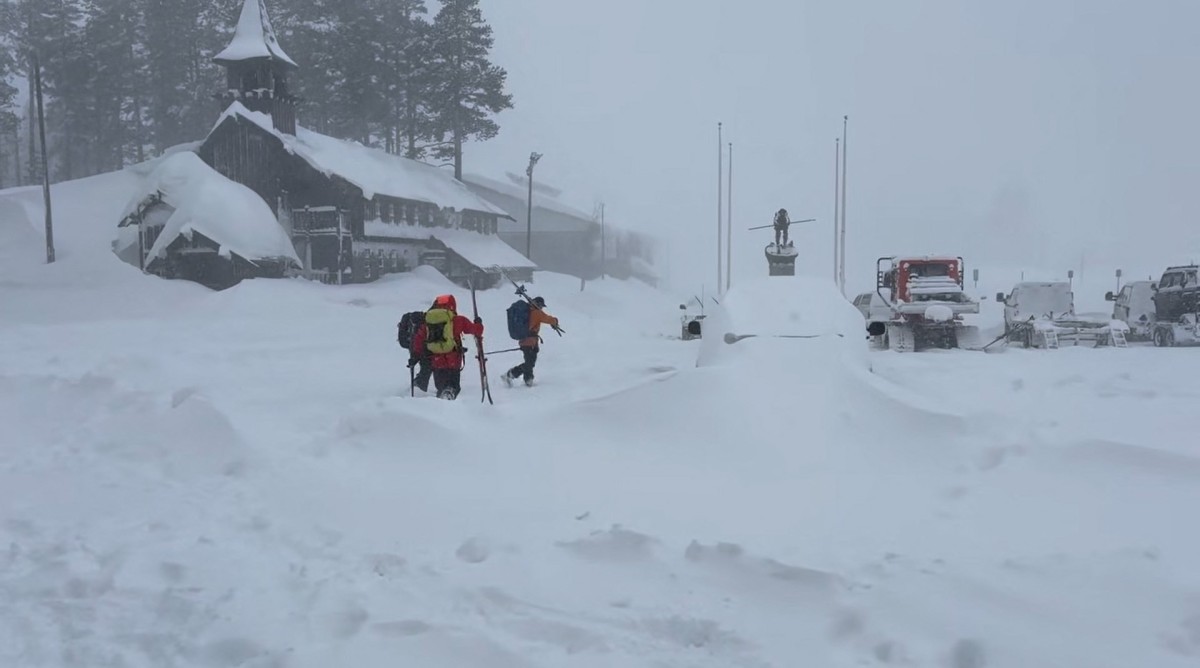
Rescue teams in California on Saturday recovered the body of the ninth and final victim of a deadly avalanche in the Sierra Nevada mountains, according to the local sheriff’s office.
The avalanche struck a group of 11 skiers and four guides on Tuesday as they were returning from a three-day backcountry trip near Castle Peak, a 2,777-meter (9,111-foot) mountain and popular tourist destination on the U.S. West Coast.
Six people were rescued alive on Tuesday. Authorities said the incident marks the deadliest avalanche in the United States since 1981.
“All nine individuals who lost their lives in the February 17 Castle Peak avalanche have been safely recovered from the mountain,” the Nevada County Sheriff’s Office said in a statement.
“There are no words that can truly capture the magnitude of this loss, and our hearts grieve alongside the families affected by this catastrophic event,” Sheriff Shannan Moon said.
Officials had warned on Thursday that search operations would likely continue through the weekend due to severe weather conditions in the area.
Survivors were able to call for help shortly after the avalanche occurred. However, near-zero visibility and the risk of additional snow slides prevented rescue teams from reaching them for several hours.
-
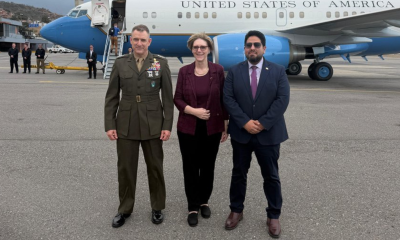
 International5 days ago
International5 days agoTop U.S. Military Commander Meets Interim Venezuelan Leaders After Maduro’s Capture
-
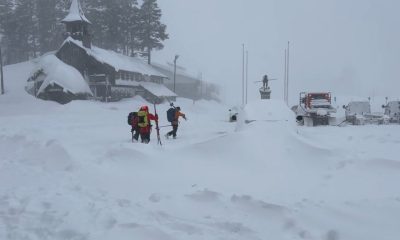
 International2 days ago
International2 days agoNinth Victim Recovered After Deadliest U.S. Avalanche in Decades
-

 International3 days ago
International3 days agoTrump Defies Supreme Court With New 10% Global Tariff
-

 International4 days ago
International4 days agoThree Injured in Mail Package Explosion at Buenos Aires Gendarmerie Academy
-

 International4 days ago
International4 days agoU.S. Targets Members of Outgoing Boric Administration With Visa Revocations
-
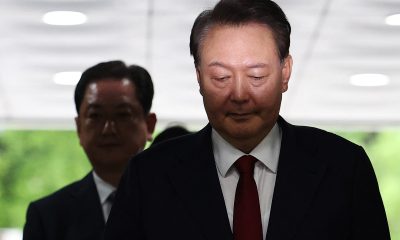
 Sin categoría5 days ago
Sin categoría5 days agoFormer South Korean President Yoon Suk-yeol Sentenced to Life for Insurrection
-

 International21 hours ago
International21 hours agoOver 40 Million Affected by Major Snowstorm in Northeastern U.S.
-

 International21 hours ago
International21 hours agoNine People Killed in Two Armed Attacks in Manabí, Ecuador













